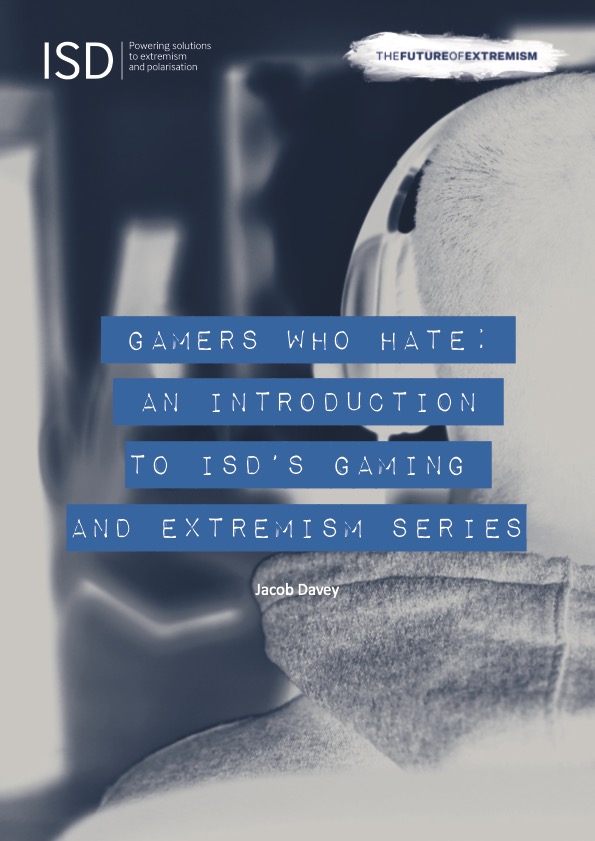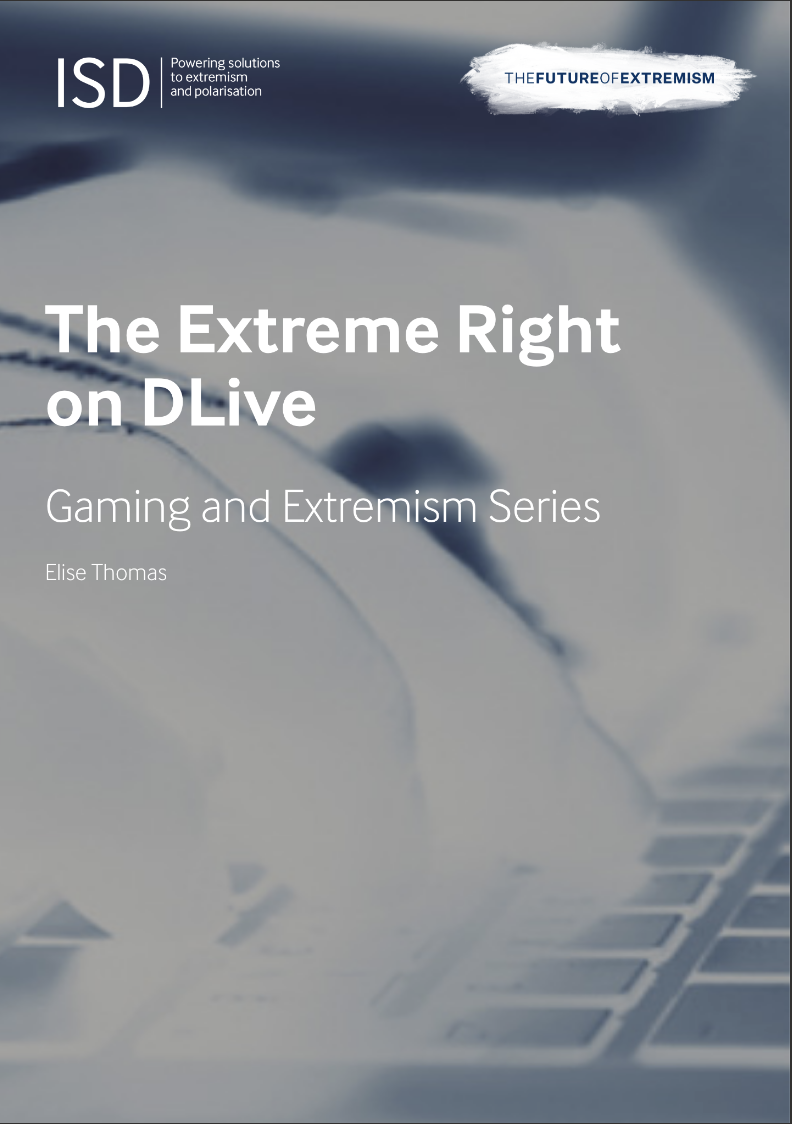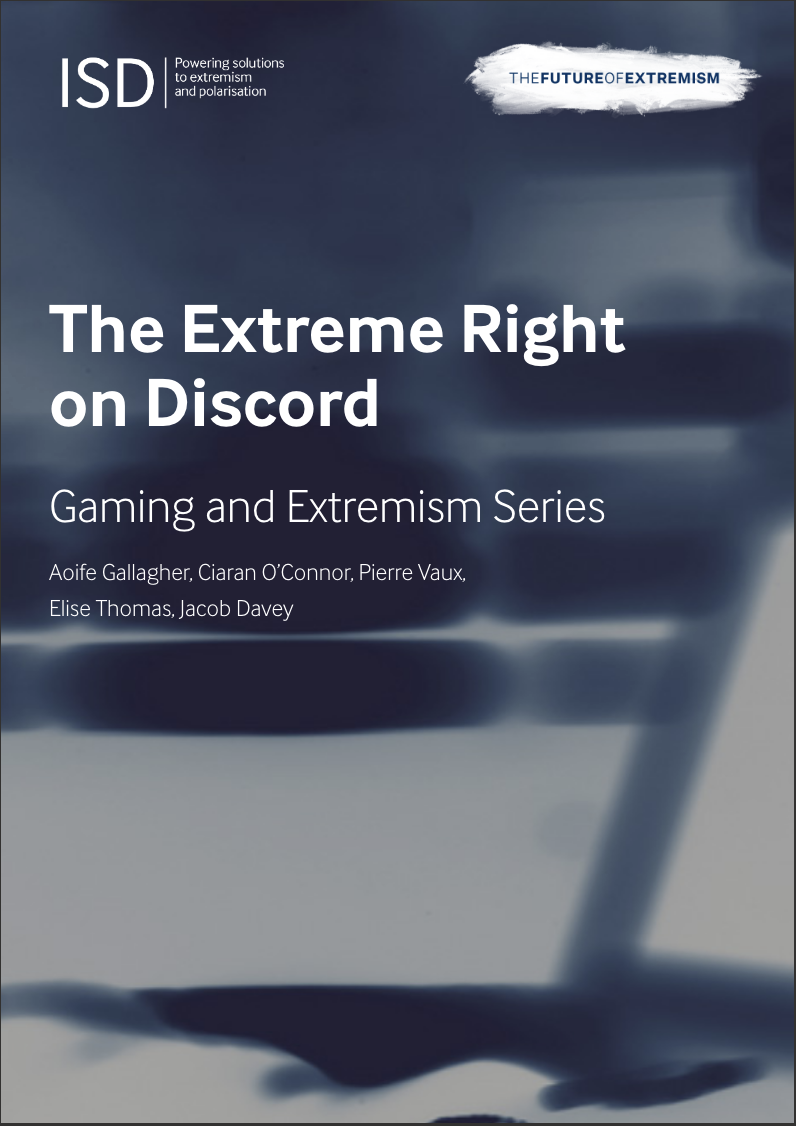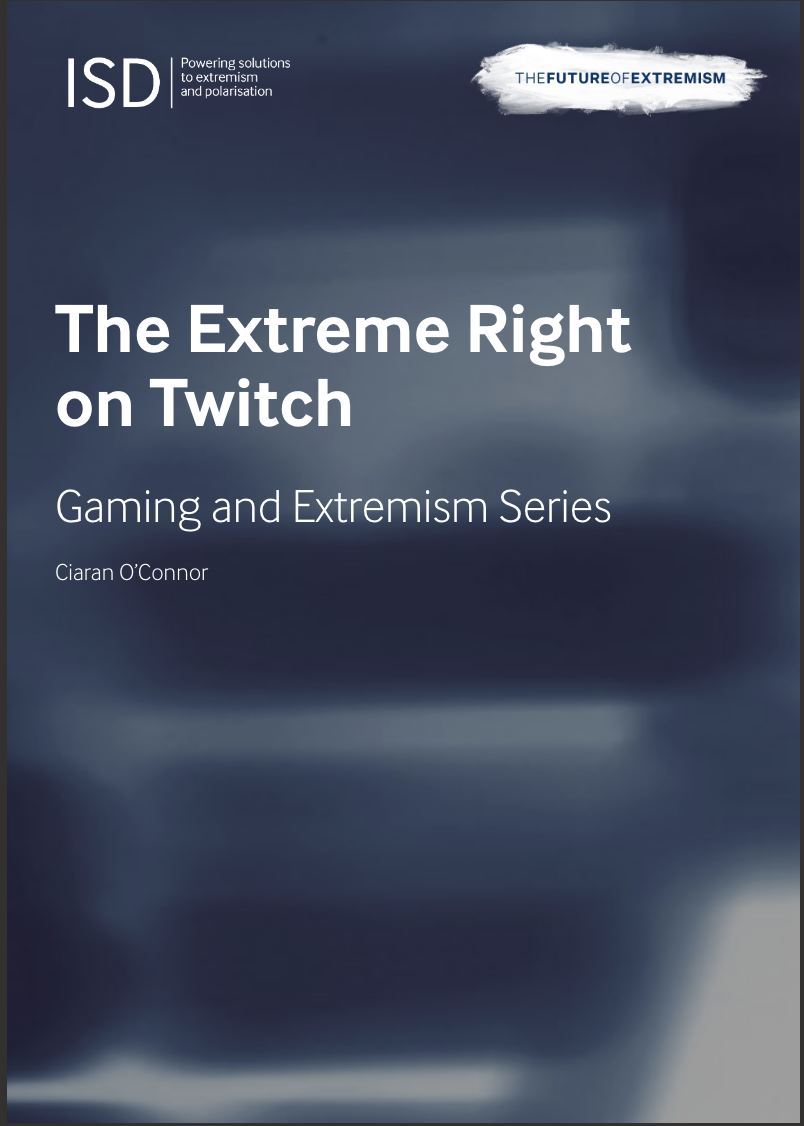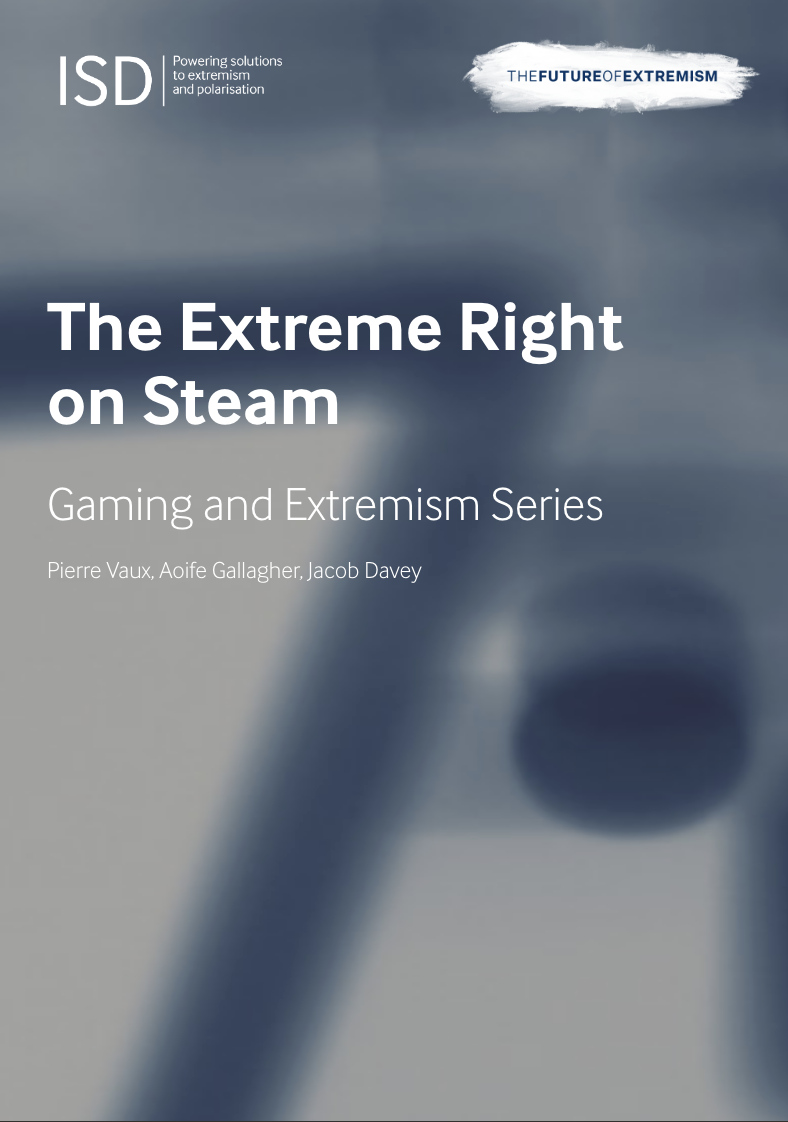Gaming and Extremism: Extremists Evade Mainstream Restrictions in Corners of Gaming World
24th September 2021
ISD’s Future of Extremism series charts the transformational shifts in the extremist threat landscape two decades on from 9/11, and the policy strategies required to counter the next generation of extremist threats.
As part of this series, ISD analysts have explored the role online gaming plays in the strategy of far-right extremists in the UK and around the world.
_________________________________________________________________________
Globally, gaming is now the most profitable entertainment industry, far surpassing both music and film. According to the gaming market data company Newzoo, there are 2.81 billion gamers worldwide and in the United Kingdom 39% of the population play video games, a figure that rises to 73% within the 16 – 24 year old age range. The industry is expansive and allows huge numbers of people across the world to play and interact with one another. However, as with social media platforms, the connectivity afforded by gaming platforms brings risks which provide fertile ground for a range of social harms.
One particular area of concern is the current growth of far-right extremism and terrorism. Gaming communities have played an important role in the formation of contemporary extreme-right culture. Gamergate, a social phenomenon that saw mass mobilisation and harassment by gamers against female journalists in a push back at perceived intrusion into the gaming sector, has been seen by many as a pivotal moment in the formation of the so-called “alternative right.”
Yet, while there is a growing body of research into the online strategies of the extreme right, there is a far smaller literary corpus analysing the intersection with online gaming. What literature is available largely focuses on the small number of niche games created by extremists, or vulnerabilities which might make gamers susceptible to radicalisation. Moreover, while there are several anecdotal stories reported in the media around extremists grooming youngsters over online games, the precise role gaming plays in the radicalisation strategies of the extreme right remains severely underexplored.
To help fill this evidence gap, ISD engaged in a scoping project exploring the use of the gaming-related platforms Steam, Discord, Twitch and DLive by the extreme right. Gamers who Hate, the first of five briefings part of our Gaming and Extremism series, takes a look into the extent to which video games form part of a deliberate radicalisation strategy and evidences the nature of extremist mobilisation on platforms associated with gaming communities. Each of the briefings focused on one of the aforementioned platforms.
Headlines from this research include:
➜ Analysts identified a wide range of extreme right communities and influencers operating across Steam, Discord, and DLive, and a smaller variety of influencers on Twitch.
➜ On Steam and Discord, analysts found support for violent extreme right groups, including content from proscribed terrorist organisations on Discord.
➜ A majority of the English-language communities analysed on Steam and Discord are country- agnostic extreme right-wing spaces, a reflection of the transnational nature of extreme right wing activity online.
➜ Evidence suggested that users of extreme right channels on Discord are very young, raising concerns that the platform is being used for the radicalisation of minors.
➜ The four platforms appear to serve several different roles in the extreme right ecosystem. In part, these roles appear to be linked to the content moderation of the platforms themselves; platforms with stricter and well enforced policies appear to be used in a more opportunistic fashion.
➜ The analysis suggests that in online spaces populated by the extreme right, gaming acts as a means of bringing already radicalised people together rather than as part of a concerted strategy to radicalise and recruit new individuals.
These findings have generated a far-reach of media coverage over the last few weeks. It has exposed corners of the gaming world where far-right gamers can live out a fantasy, far from the user restrictions of mainstream media platforms.
BBC’s Click further investigated far-right community building and extremist activity on various online gaming platforms. ISD’s Jacob Davey is featured throughout the segment commenting on how extremists have found a workaround for mainstream platforms within these safe havens where they can connect with likeminded people, and sometimes live out “radicalised fantasies” like building nazi concentration camps in Minecraft or re-enacting mass shootings.
As part of this work, and the ongoing development in this field, ISD is also part of the Extremism and Gaming Research Network (EGRN), a newly launched network of counter-extremism organisations focusing on the exploitation of this popular activity by violent extremist organisations around the world. EGRN intends to evidence the malign activity occurring on these platforms with no further overview, while also exploring how gaming can be better used for positive outcomes.
ISD is dedicated to evidencing far-right activity on gaming platforms and will continue sharing our findings with the public, the media and policymakers as far-right wing extremists’ internet use spills over more and more from mainstream sites to alt-platforms. If you would like to contact someone on the team about this area of work, please email [email protected].

